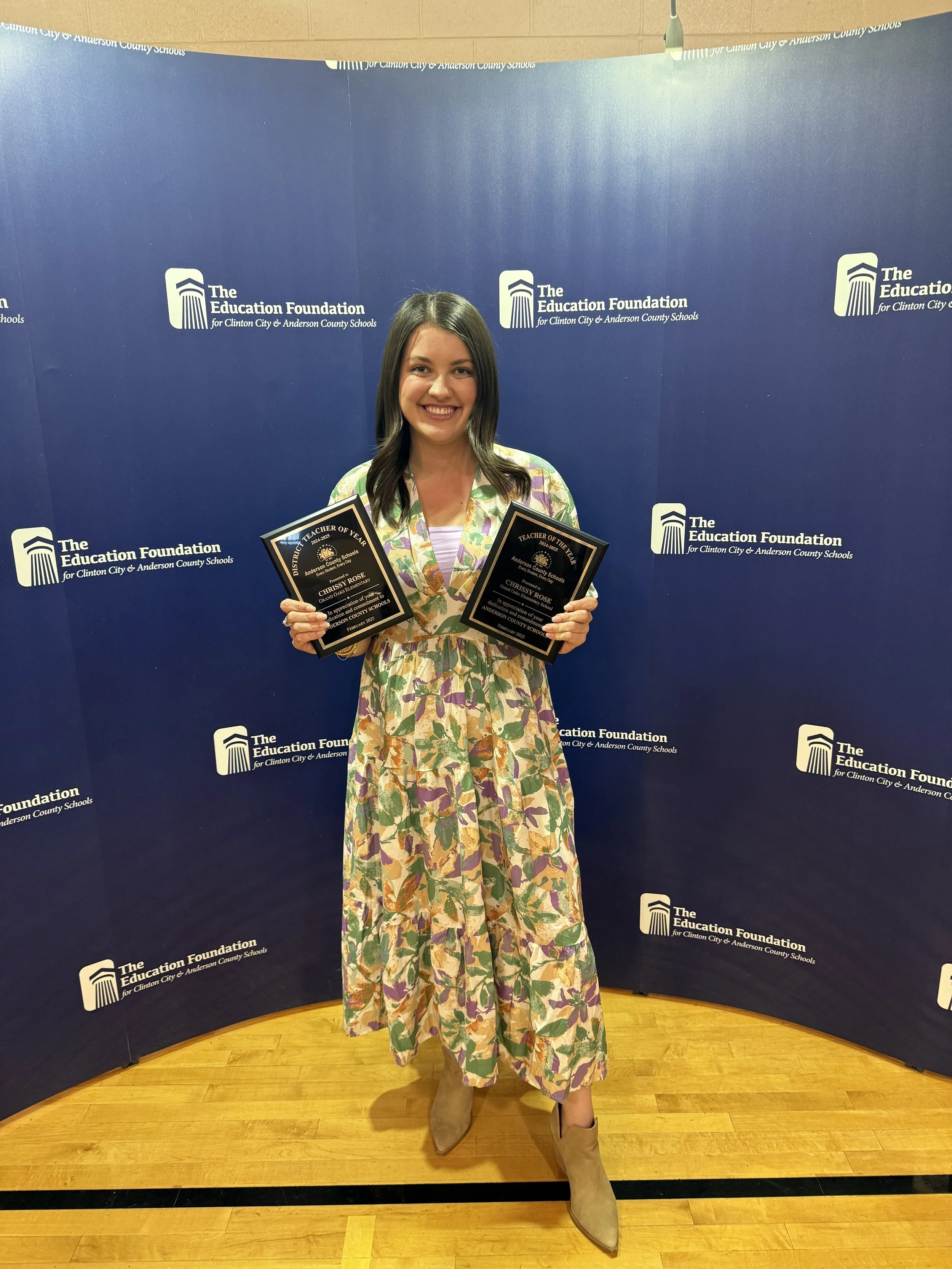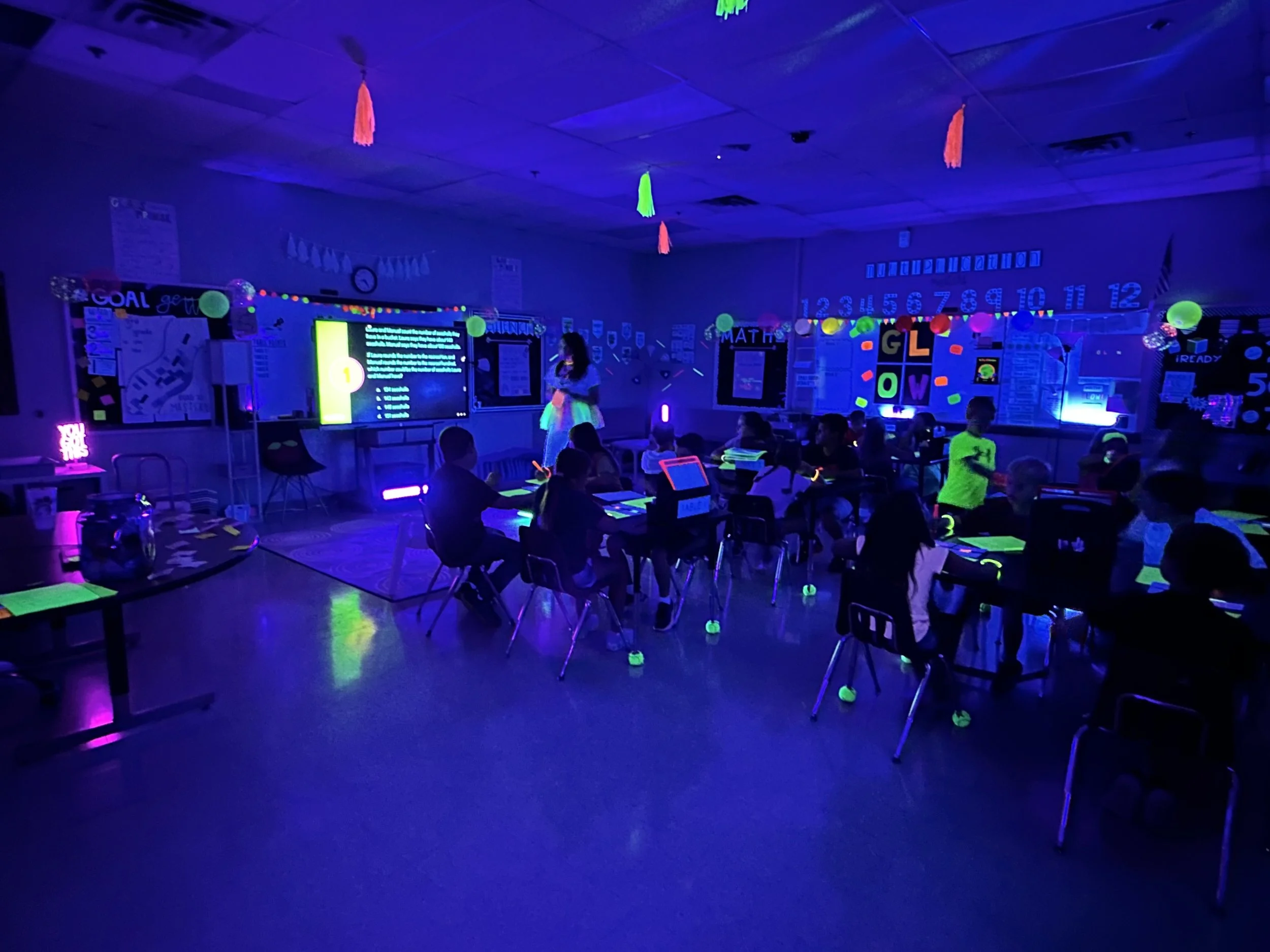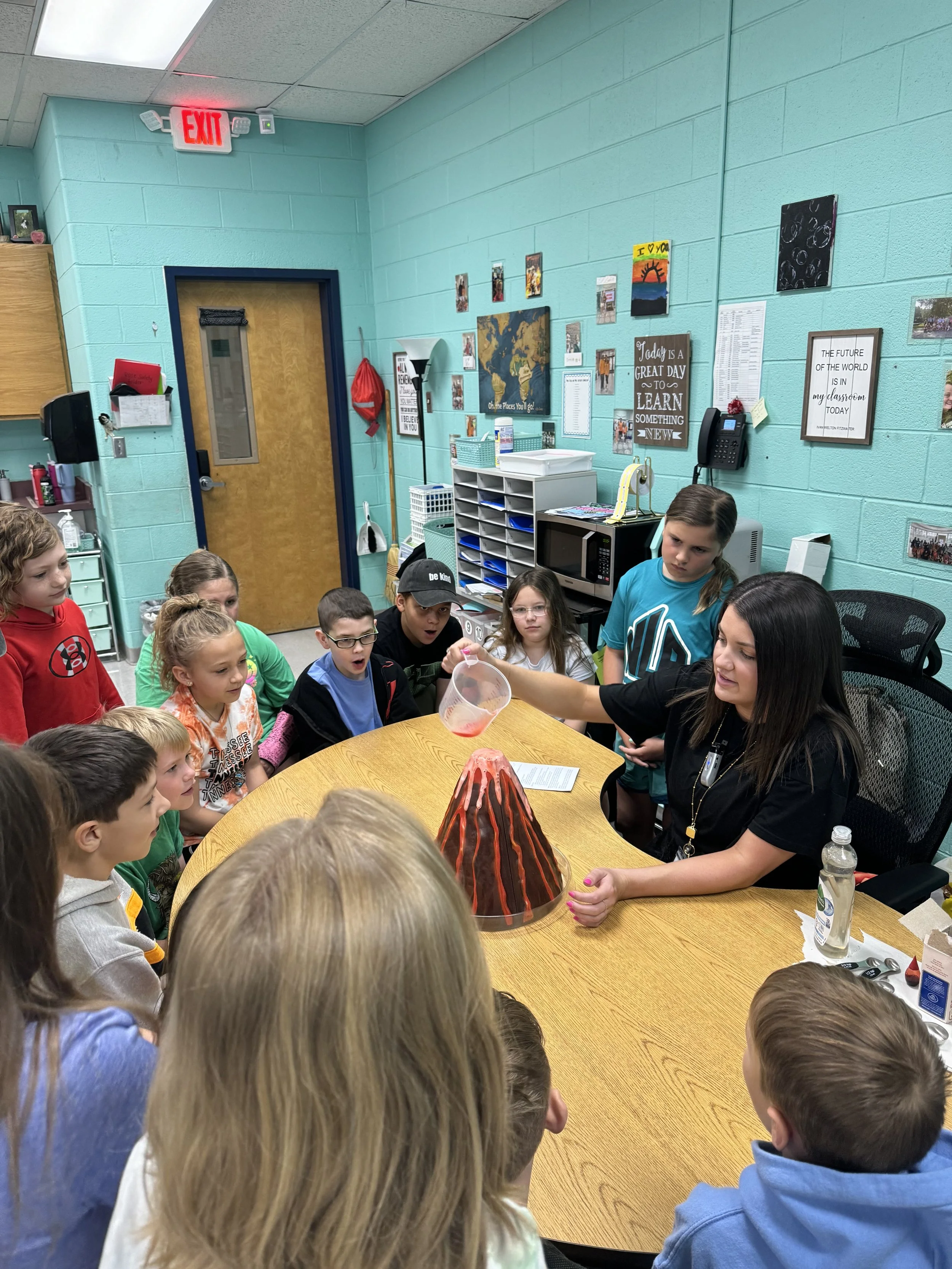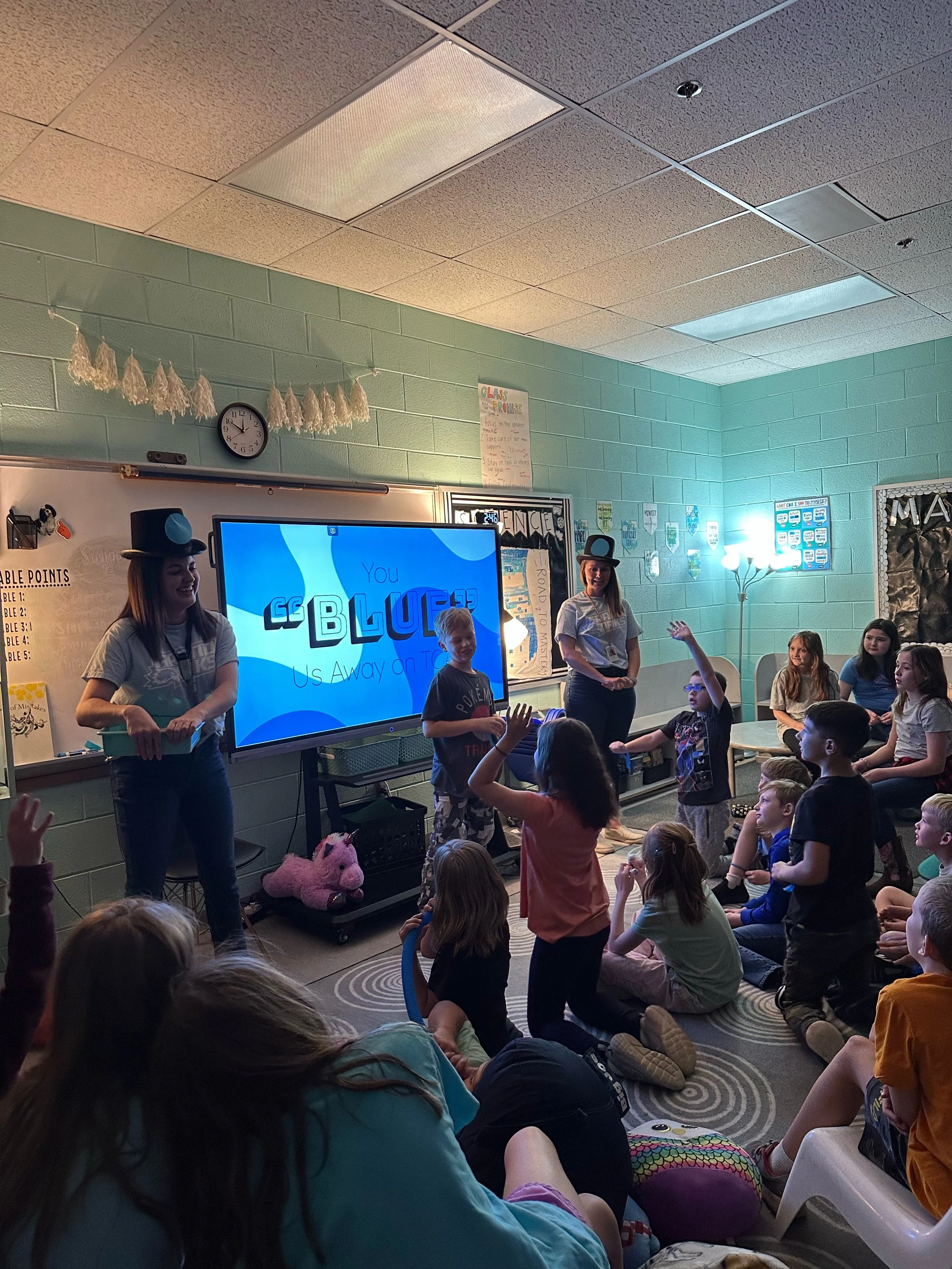Anderson County Teacher of the Year Finalist Chrissy Rose Helps Students Pave Their Own ‘Roads to Mastery’
Anderson County Schools’ Teacher of the Year finalist Chrissy Rose has known since she was two years old that she wanted to teach.
“There’s truly not one thing that inspired me,” Rose says. “People would ask what I wanted to be, and I’d say ‘teacher.’ It never wavered.”
Now a third-grade teacher at Grand Oaks Elementary, Rose has turned that lifelong certainty into a career defined by innovation, equity, and deep connection with her students.
“I had an amazing first-grade teacher,” she recalls. “She wore crazy costumes, came to sporting events. She shaped the kind of teacher I wanted to be.”
A Classroom Built on Trust
At Grand Oaks, a Title I rural school in Anderson County, Rose teaches in a trauma-informed environment that prioritizes emotional wellness alongside academic success. Her classroom begins each day with a 15-minute morning meeting, giving students space to check in and share how they’re feeling.
“We’re a trauma-informed school, so our students use Zones of Regulation,” she explains. “If they’re sad that day or didn’t sleep, we know—so we can get the pulse of the classroom.”
Every room at Grand Oaks has a “calm zone,” helping teachers be proactive instead of reactive. The impact, Rose says, can be profound and free.
“Students aren’t going to want to learn hard things if they don’t feel safe to make mistakes,” she says. “Morning meetings and the Zones of Regulation don’t require funding. We can do so much statewide that helps students learn and doesn’t cost a thing.”
“Give Us a Little Time”
That mindset has helped Rose reach students whom others might struggle with, like the boy who transferred into her class during her second year of teaching.
“His mom told us he didn’t like school and never would,” Rose says. “My teaching partner and I told her, ‘Give us a little time, and I promise he’ll like school.’”
Two weeks later, his mom was reporting that he was waking up eager to come to class.
For Rose, that transformation is the heart of teaching.
“Any moment with a student is why I do what I do,” she says. “Especially when math doesn’t come easy for them. My goal is to make it fun and relatable. I’ve used football, I’ve told stories about my dog. It’s about putting yourself in their shoes.”
Road to Mastery
One of Rose’s most impactful teaching tools came from her desire to make student data understandable, even to nine-year-olds. That led her to create The Road to Mastery, a color-coded visual tracking system now used by other educators in her district.
“Sometimes it’s hard to explain to a nine-year-old what a 70 percent means,” she explains. “We use a four-point scale for benchmarks, so I turned that into colors—blue for a 4, green for a 3, yellow for a 2.”
In her classroom, a visualized road stretches across the wall. When students get a “blue,” they move further along the path. Yellow signals a chance to pause and reflect.
“If you get a yellow in rounding, maybe you can think about what you need to do better next time,” she says. “One of my students came up to me and said, ‘I have to slow down because I got a yellow and I know this stuff.’ That’s what it’s for—reflection and ownership.”
Tech-Forward, People-First
Rose embraces technology as a key tool in her teaching, but she’s intentional about balancing it with human connection.
“Kids today are going to grow up with technology no matter what,” she says. “So, it’s our job to show them how to use it in a safe, responsible way.”
She integrates digital tools into review games and small group practice and even uses artificial intelligence to work smarter.
“Our academic coach taught us how to use ChatGPT to create review questions for TCAP,” she says. “We’re learning how to work smarter, not harder.”
And during the school’s annual STEM Day, students got a visit from an AI expert to explore how technology is shaping their world.
Celebrating Growth for All
For Rose, classroom celebrations aren’t just about high scores; they’re about effort and growth.
“We don’t just celebrate the highest benchmark scores, because it’s always the same students,” she says. “If someone goes from a 30 percent to a 32 percent, that’s growth, and we celebrate that.”
Whether a student struggles academically or thrives, Rose finds ways to spotlight their success.
“We celebrate out-of-school victories too,” she adds. “If a student wins their baseball tournament, we bring it up during morning meetings.”
Her goal? Make sure every child feels seen and supported.
“Through collaboration, talking to their peers, and small moments of recognition, students learn that their effort matters.”
Leading Beyond Her Classroom
Rose’s impact extends far beyond her classroom. Her Road to Mastery system is now used by teachers across Anderson County. And as a finalist for Tennessee Teacher of the Year, she’s using her platform to advocate for student mental health.
Her school is fortunate to have a full-time mental health therapist, funded by a district grant, but she hopes to see that support system expanded across the state.
“We need more of that. But we can also do a lot without funding,” she says. “Things like the Zones of Regulation and morning meetings can raise emotionally and socially regulated adults. That’s the goal.”
A Dream Come True
Rose never imagined her childhood dream would lead her to be named one of the top nine teachers in the state.
“Winning at the school level in November was already an honor,” she says. “Then winning the district in December was a shock. This whole process has been so cool.”
Being forced to reflect during the application process, she says, made her an even stronger educator.
“It’s made me sit down and think about what I want to include in my classroom. Every step has helped me grow.”
And after all these years, that two-year-old dream hasn’t faded.
“Every day in the classroom is a dream come true,” she says. “And this honor has been a dream come true, too.”






